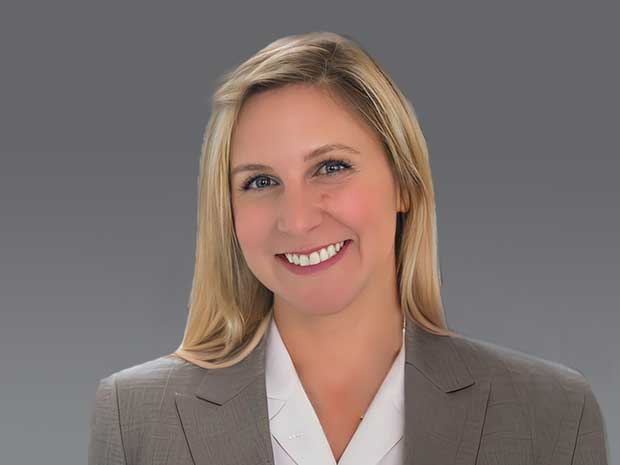Closing out the 2025 legislative session, Alabama Gov. Kay Ivey signed several tax bills in mid-May enacting numerous taxpayer-friendly provisions, including a new safe harbor for certain mobile employees, decoupling from federal section 174, reducing the grocery sales tax rate, providing new exemptions related to maternity, extending the time to appeal to the Alabama Tax Tribunal, and amending how municipal and county business license tax assessments are appealed. A more detailed summary of the changes is described below.
Executive summary:
Mobile workforce comes to Alabama
Effective Jan. 1, 2026, Alabama House Bill 379 adopts mobile workforce legislation providing a 30-day individual income tax safe harbor for certain nonresidents. Specifically, compensation paid to a nonresident is exempt from the income tax and withholding requirements if the compensation is paid for duties performed in the state for 30 or fewer days in a calendar year. Professional athletes, entertainers and public figures are excluded. Additionally, the nonresident’s state must also provide a substantially similar exclusion or not impose an individual income tax. If the nonresident performs duties in Alabama for over 30 days, the employer must withhold and remit the income tax for all days worked, including the first 30 days.
The bill defines excluded professions as follows:
- Professional athlete: an athlete who performs services in a professional athletic event for compensation
- Professional entertainer: a person who performs services in the professional performing arts for compensation on a per-event basis
- Public figure: a person of prominence who performs services at discrete events, such as speeches, public appearances, or similar events, for compensation on a per-event basis
Federal mobile workforce proposals have been introduced in over a decade’s worth of congressional sessions with little legislative progress. Those proposals are intended to create a federal solution to the continuing question of whether there should be a national standard for the minimum amount of time an employee must work in a nonresident state before requiring the employee to file an income tax return, and the employer to withhold and remit income taxes on behalf of nonresident employees. A version of the federal solution was passed by the House in 2016 and in 2017. Since the relative failure of those efforts, both the Council on State Taxation (COST) and the Multistate Tax Commission (MTC) have developed a model uniform state mobile workforce law. Several states have passed either a version of the COST or MTC model law, or separately provide a safe harbor for nonresidents. House Bill 379 closely aligns with the COST version of the model law.
More recently, federal tax reform discussions involved a proposal to add mobile workforce to the reconciliation bill, although it is too early in the process to evaluate whether such a provision would be included.
Research and expenditures deduction decoupling
Effective retroactively for tax years beginning on or after Jan. 1, 2024, Alabama House Bill 163 decouples from IRC section 174 in favor of providing taxpayers an option to currently deduct research and experimental expenditures (R&E) or treat the expenses in the same manner as section 174 before the Tax Cuts and Jobs Act (TCJA) amendments took effect in tax year 2022.
Recall that the TCJA amended section 174 to require taxpayers to capitalize and amortize their R&E expenses over a five-year or 15-year period for domestic and foreign costs, respectively. The changes to section 174 apply to R&E expenses paid or incurred in tax years beginning after Dec. 31, 2021. States mostly have conformed to this position, although a small number have decoupled or have provided an election for current expensing of section 174 costs. The business community has advocated for the pre-2022 treatment of R&E expenditures and a proposal to return to current expensing even passed the House in January 2024.
It is anticipated that federal tax reform could make changes to section 174 that would be favorable to taxpayers, such as returning to pre-TCJA treatment. As of May 12, 2025, an early draft tax bill would return to full expensing for domestic R&E expenses.
Sales tax reductions and exemptions
On May 12, 2025, Gov. Ivey signed House Bill 386, reducing the 3% state grocery tax to 2%. The rate was previously lowered from 4% by legislation enacted in 2023. The new 2% rate is effective Sept. 1, 2025.
House Bill 152, signed the same day, exempts baby formula, baby bottles, baby wipes, breast milk pumping equipment, diapers, maternity clothing, and menstrual hygiene products from the state portion of the sales tax effective Sept. 1, 2025.
Tax appeal changes
Alabama Senate Bill 174 expands the Alabama Tax Tribunal’s jurisdiction to include county business license and privilege taxes or fees, or municipal business licenses for trades, businesses, professions, or other similar activities, effective Oct. 1, 2025.
Finally, House Bill 505 extends the time to file certain tax appeals to 60 days. Currently, taxpayers may appeal final assessments to the Alabama Tax Tribunal or, at the election of the taxpayer, the Circuit Court of Montgomery County, within 30 days from the date of mailing or personal service. The bill extends both appeal periods to 60 days effective Oct. 1, 2025.
The lack of uniformity among state tax appeal deadlines has recently been recognized in a white paper from the AICPA.
Takeaways
The slate of tax bills approved after this year’s legislative session provides for numerous taxpayer-friendly changes by giving relief to mobile employees and businesses with R&E costs and by providing favorable tax appeal changes. Taxpayers with questions about the legislation’s affect on their Alabama operations should contact their tax adviser for more information.
RSM contributors
-
 Mark SiegelPartner
Mark SiegelPartner -
 David WellsSenior Manager
David WellsSenior Manager -

Tax resources
Timely updates and analysis of changing federal, state and international tax policy and regulation.
Subscribe now
Stay updated on tax planning and regulatory topics that affect you and your business.
Washington National Tax
Experienced tax professionals track regulations, policies and legislation to help translate changes.

